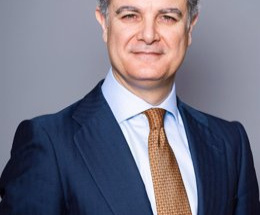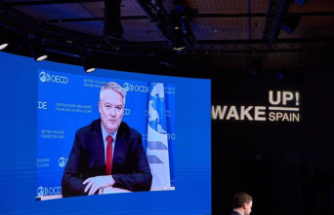Harry Kelley, a 30-year customer service manager, is a stickler for good service.
And he says he didn’t get it one day last month when he visited his St. Louis Park McDonald’s on W. Lake Street to buy three double cheeseburgers and an order of French fries in the drive-through lane, as he had done many times over 28 years.
Kelley paid the $6.44 he owed on Jan. 20. He has the receipt. And he said the drive-through employee shorted him a cheeseburger.
What happened next is a glimpse into how routine transactions, the backbone of business, can morph into disputes that can turn regular customers into former customers. And Kelley is still unhappy.
“The store manager did call me,” Kelley said. “We chatted for a bit, and he sent me a postcard redeemable for a free value meal.”
Kelley wanted an apology, and he said he hasn’t redeemed the coupon. AP file The sign at a McDonald's restaurant.
In this case, the drive-through employee told Kelley that he put three burgers in the bag and implied that Kelley may have stashed one in the car, according to Kelley.
Kelley, insulted, parked his car and walked inside the store to complain. The duty manager offered him a couple of apple pies as compensation.
Kelley, who felt blown off, wanted an apology. He took his case to McDonald’s corporate office in Chicago. That only steamed him more.
He called a customer service representative and received an e-mail from an employee at McDonald’s customer contact center, saying he had referred the matter to the owner of the St. Louis Park store.
The owner’s representative spoke with me, and conceded the situation could have been handled better.
Kelley, 59, who produced meticulous records of the transaction gone asunder, including names of employees, said: “I would like to see McDonald’s corporate office jacked up a bit. I’d like … not a cookie-cutter response. I would have liked, ‘We’re going to follow up with management and they are going to … work with the store to improve customer service.’ ”
McDonald’s corporate office did not respond to my inquiry about the situation.
The staff at McDonald’s on W. Lake Street in St. Louis Park was courteous when I visited with Kelley in late January.
It sounds like the drive-through employee, a three-year veteran, had a bad morning with Kelley. He’s considered a good employee.
And I’ve witnessed a lot of appalling customer behavior over the years at restaurants and sales counters. Fast-food jobs are tough. There were three, mouthy teenage boys wrestling in the booth next to Kelley and me the day we talked.
Mike Darula, the franchisee representative, didn’t want to be quoted directly for this column. However, he indicated in our conversation that there had never been a problem with the veteran employee who had insisted that he had placed three sandwiches in Kelley’s bag.
Darula conceded that the employee also shouldn’t have challenged Kelley. He supports the duty manager who intervened.
Good people can be hard to come by in an employee-hungry economy, especially when the pay isn’t good.
It’s just too bad amends couldn’t have been made. Darula implied he would be happy to talk to Kelley.
We all should remember that fast-food empires disproportionately employ minimum-wage employees who often are swamped and dealing with the occasional customer from hell.
Kelley seems like a good guy who was irked. I know I couldn’t handle the multi-tasking required at a McDonald’s or my Holiday station.
I marvel that those employees on 37th and Cedar Avenue S. don’t lose their cool more often.
The value of customer service has been widely documented. Last year, NewVoiceMedia, a cloud services company, estimated that bad customer service cost businesses $62 billion, up $20 billion from 2013, citing its commissioned survey of 2,003 people in the United States.
Almost half of those surveyed said they had taken their business elsewhere when they encounter what they consider bad service. Among the top reasons consumers had for leaving: not feeling appreciated.
We all need to take a breath and listen more. And as business owners know, it can make the difference between a loyal customer and a former customer.
Our editors found this article on this site using Google and regenerated it for our readers.













